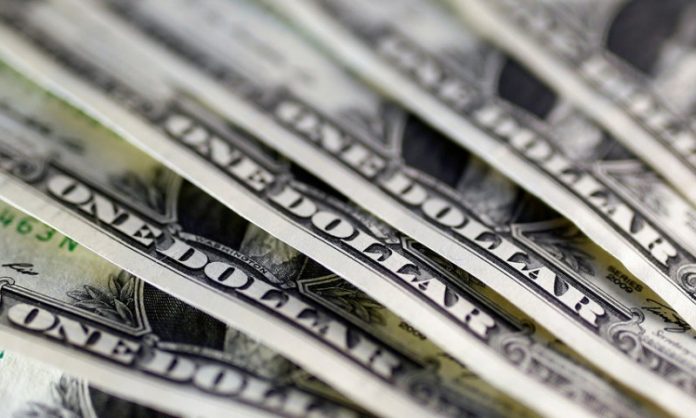HONG KONG: The dollar edged down in Asian trade Thursday after an uninspiring statement from the Federal Reserve’s latest policy meeting while concerns over Donald Trump’s presidency hit equity markets.
After the central bank’s first meeting of the year policymakers noted ongoing economic growth, job gains and improving business and consumer confidence, but gave little away about its intentions for monetary policy.
The Fed said it “expects that economic conditions will evolve in a manner that will warrant only gradual increases in the federal funds rate”, almost unchanged from its December statement.
The bank said it still expects to raise rates only gradually, though analysts said the timing is a subject of debate.
While it was not expected to make any big announcements — having hiked interest rates last month — the lack of any solid guidance hit the dollar, which was already under pressure on concerns about the controversial start to Trump’s term in office.
“Traders seem to be disappointed with the Fed’s decision,” Greg McKenna, chief market strategist at FX and CFD provider AxiTrader, said in a note.
“Janet Yellen’s statement was a bit of an anticlimax insofar as it completely straight-batted the current outlook and added little fresh information on the outlook for the US economy.”
The greenback dipped against the yen and euro while it also retreated against most higher-yielding currencies including the South Korean won, Australian dollar and Canadian dollar.
– Protectionism fears –
The dollar’s weakness compares with the rally it enjoyed in the two months after Trump’s November election win as traders bet his pans for big spending and tax cuts would fire the US economy, stoke inflation and lead to rate hikes.
However, his order to ban travellers from seven Muslim-majority nations and a series of outbursts from the administration have fuelled concern he will press on with a unilateralist agenda that could lead to a global trade war.
“The Trump administration’s protectionist rhetoric and divisive political approach have raised concerns the anticipated fiscal stimulus measures could be derailed,” Elias Haddad, Sydney-based senior currency strategist at Commonwealth Bank of Australia, told Bloomberg News.
The uncertainty continues to hurt equities markets, with Tokyo ending 1.2 percent lower and Hong Kong down 0.7 percent in late trade, while there were also losses in Singapore, Wellington and Taipei.
Sydney fell 0.1 percent while Seoul retreated 0.5 percent.
The tepid performance came despite a positive lead from Wall Street and Europe following strong increases in US private-sector hiring and manufacturing activity.
Oil prices dipped after rallying Wednesday in response to warnings from the Trump’s National Security Adviser General Michael Flynn that crude-exporting giant Iran had been put “on notice” over its recent missile test.
– Key figures around 0650 GMT –
Tokyo – Nikkei 225: DOWN 1.2 percent at 18,914.58 (close)
Hong Kong – Hang Seng: DOWN 0.7 percent at 23,159.49
Shanghai – Composite: Closed for holiday
Euro/dollar: UP at $1.0790 from $1.0766
Pound/dollar: UP at $1.2670 from $1.2657
Dollar/yen: DOWN at 112.70 yen from 113.27 yen
Oil – West Texas Intermediate: DOWN 28 cents at $53.60 per barrel
Oil – Brent North Sea: DOWN 22 cents at $56.58
New York – Dow: UP 0.1 percent at 19,890.94 (close)
London – FTSE 100: UP 0.1 percent at 7,107.65 (close)





